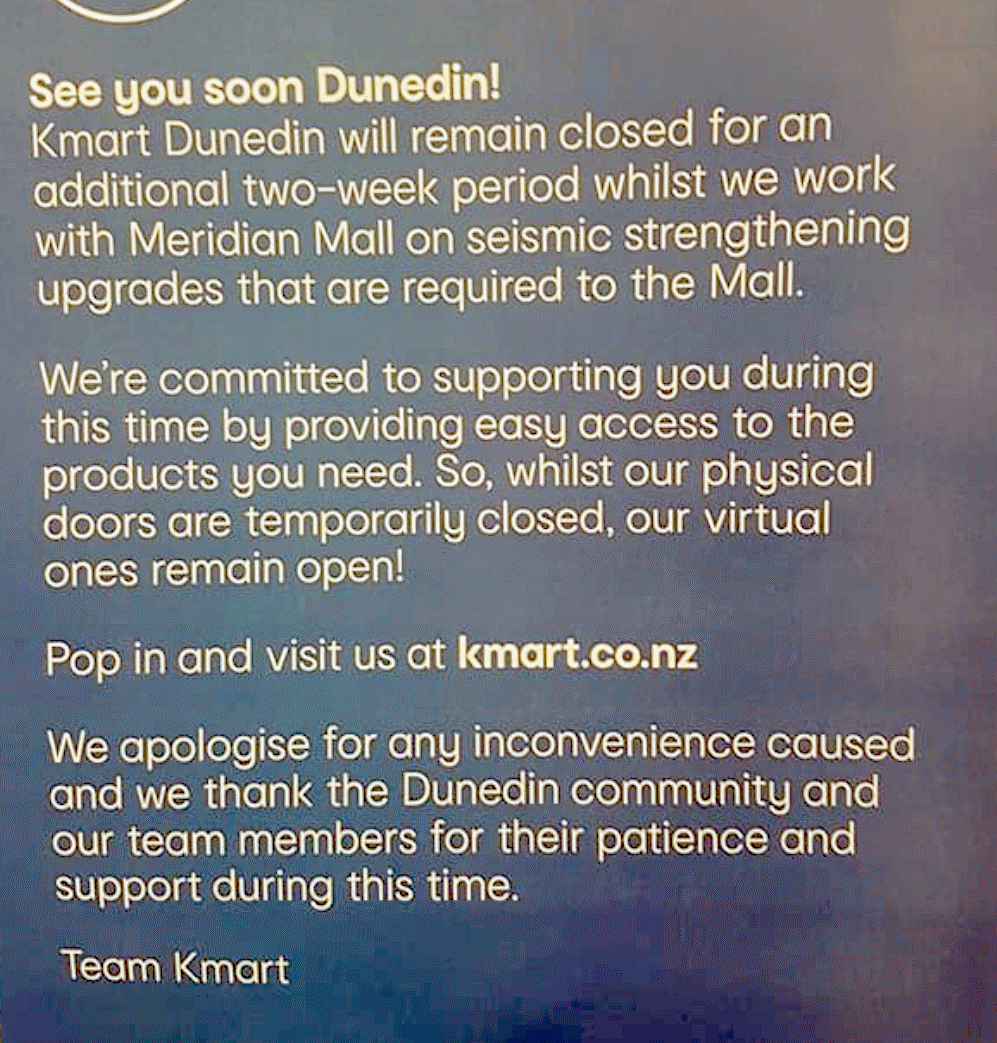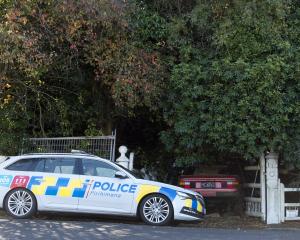
This is despite the mall's manager yesterday telling the Otago Daily Times there was no risk to staff and customers and saying the building would reopen today as New Zealand moves into Alert Level 2.
A recent assessment by a structural engineer found the mall had an expected seismic performance of less than 34% of the new building standard.
A sign on the door of Kmart said it would remain closed for "an additional two-week period whilst we work with Meridian Mall on seismic strengthening upgrades that are required to the mall".
H&J Smith is also closed and in a customer services email H&J Smith chief executive John Green said it would not be opening its Dunedin store for at least a "week or so".
"Just a few days ago we became aware that the Meridian Mall has recently received advice on the seismic rating of the complex.
"At this stage we do not have sufficient information to be confident that we can fulfil our legal and moral responsibilities as an employer and business to open to the public, so have made the difficult decision not to open."
He said the company had no doubt the building was safe for visitors but it had responsibilities as a company it could mot ignore.
"Once we have had the opportunity to evaluate the detailed seismic assessment with the help of our engineers, we will be able to make an informed decision and hopefully be back trading again soon.
"Our team as you will imagine are devastated as they were anxious to be back at work after the lockdown. They have been stood down and will be paid while we conduct this evaluation."

Oyster Property Group chief executive Mark Schiele said it was starting design and concept work to strengthen the building.
But he noted the building had a current building warrant of fitness, and stressed ‘‘the safety of staff and customers at Meridian Mall is of primary importance’’.
The building standard rating did not indicate any structural issues apart from the building’s performance in the event of an earthquake, he said.
Exactly what percentage of the standard the mall was rated at had not been determined yet.
While Dunedin was categorised under the Building Act 2004 as being in a low seismic risk zone, the decision had been made to take a proactive approach and begin design and concept work.
‘‘There is a considerable period available before any works would be required to be completed.’’
The mall was 23 years old and its assessment was not uncommon for buildings of its age, Mr Schiele said.
All of the mall’s 50 tenants had been contacted to advise them of the assessment.
Dunedin City Council building services manager Neil McLeod said while a building might be earthquake-prone, that did not mean it was dangerous.
Because Dunedin was in a low seismic risk zone, the Building Act provided a 15-year period for the council to identify potentially earthquake-prone buildings.












